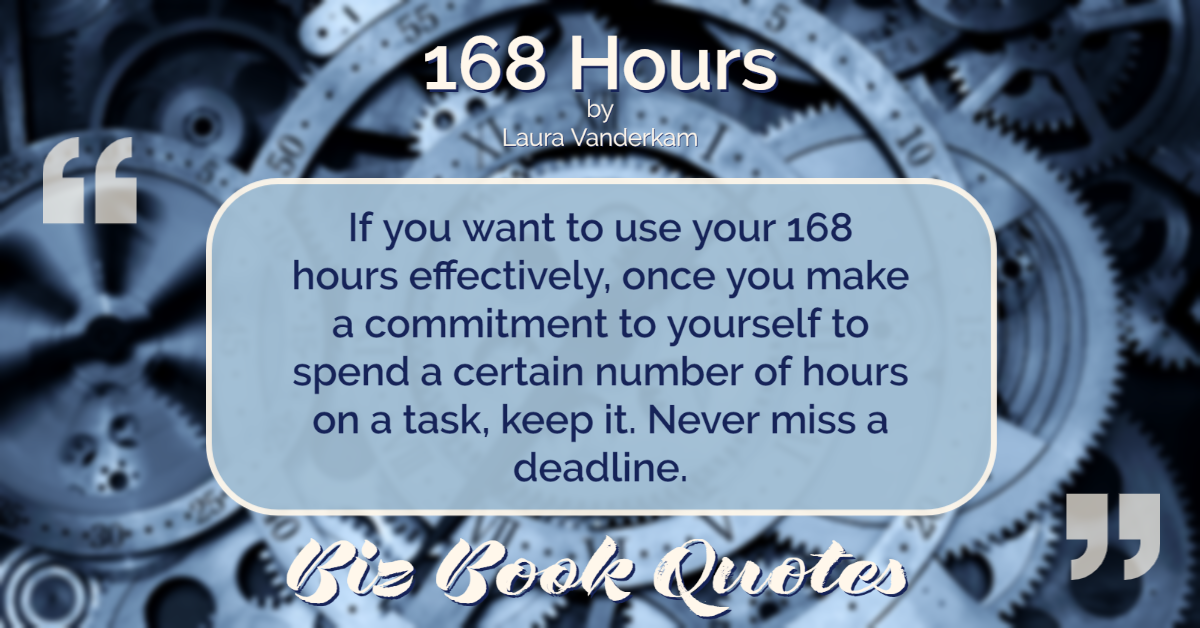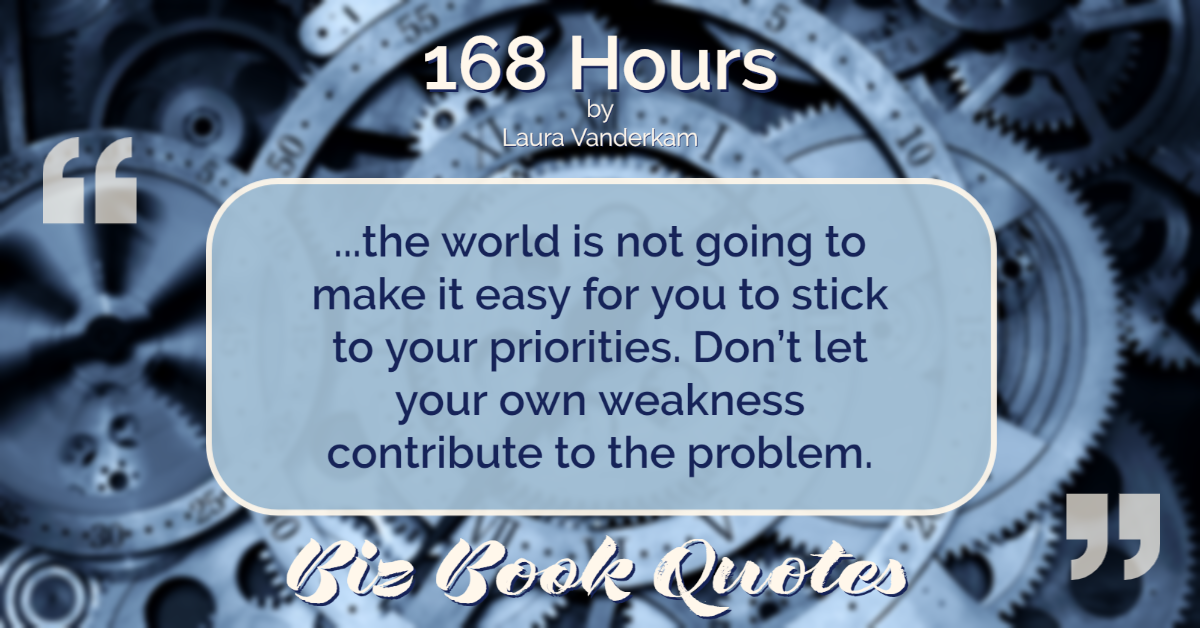|

|
168 Hours:
If you want to use your 168 hours effectively, once you make a commitment to yourself to spend a certain number of hours on a task, keep it. Never miss a deadline.
|
89 |
|

|
168 Hours:
…once you start breaking commitments to yourself and the people around you, the whole system of discipline – the trust you build up in yourself to be in control of things – breaks down.
|
90 |
|

|
168 Hours:
…the world is not going to make it easy for you to stick to your priorities. Don’t let your own weakness contribute to the problem.
|
90 |
|

|
168 Hours:
Follow through on anything you say you’ll do as a matter of personal integrity.
|
90 |
|

|
168 Hours:
Do not mistake things that look like work for actual work.
|
91 |
|

|
168 Hours:
…the average office worker wastes 1.7 hours per day on personal e-mail, phone calls, gossip, and so on…
|
93 |
|

|
168 Hours:
…to spend as much time as possible focusing on your core competencies, you’re going to need to get rid of things that you don’t do best, and that other people can do as well or better.
|
94 |
|

|
168 Hours:
You can compress time spent on non-core-competency activities with a three-part strategy: ignore it, minimize it, or outsource it.
|
95 |
|

|
168 Hours:
…people perform better when they don’t desperately need their jobs.
|
96 |
|

|
168 Hours:
…it’s liberating to go into any negotiation knowing you can say ‘no.’
|
97 |











